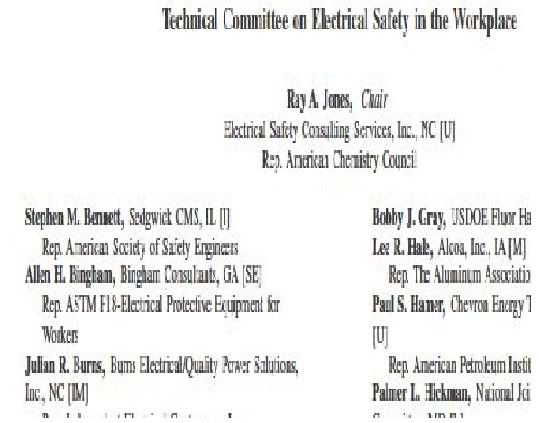jwelectric
Senior Member
- Location
- North Carolina
Notice there is no mention of what the standards of the training are.
The standards required at one workplace may be different than another. What would be the point of spending a lot of time training on things involving meduim voltage if you are never going to work on it? It also does little good training how to work something hot if you are not allowed to work things hot. Working things hot is not covered by the NEC anyway. Last I knew this was an NEC forum.
Who issues these cards? Likely the plant or a third party that the plant recognizes. Not very likely to be the AHJ that does general electrical inspections and licensing. The card may not be valid at anyplace you choose but rather those that recognize it.
From 70E
110.6(D) Employee Training
(1) Qualified Person. A qualified person shall be trained and knowledgeable of the construction and operation of equipment or a specific work method and be trained to recognize the electrical hazards that might be present with respect to that equipment or work method.
(b) Such persons permitted to work within the Limited Approach Boundary of exposed of energized electrical conductors and circuit parts operating at 50 volts or more shall, at a minimum, be additional trained in the following:
(4) The decision-making process necessary to determine the degree and extent of the hazard and the personal protective equipment and job planning process necessary to perform the task safely.
(e) Employees shall be trained to select an appropriate voltage detector and shall demonstrate how to use a device to verify the absence of voltage, including interrupting indications provided by the device. The training shall include information that enables the employee to understand all limitations of each specific voltage detector that may be used.
Table 130.7(C)(9) Pnaelboards and Other Equipment Rated 240 volts and Below
Work on energized electrical conductors and circuit parts, including voltage testing
Hazard/Risk Category 1, Rubber Insulating Gloves Yes, Insulated and insulating tools yes
Anyone who does not follow these rules is an unqualified person that is not only putting their self in harm?s way but could be causing pain for others.
This part of the training is all encompassing for all aspects of the electrical industry.
My card was issued by Julin Burns and states that I have completed a seminar for Electrical Safety In The Workplace 2009 NFPA 70E Arc-Flash Awareness
Mr. Burns is on the board for NFPA 70E
I would hope that all the electricans out there would know and understand just what is meant by the catagory rating of their test equipment.
How many uses test equipment with a cat rating of less than level III or no rating at all?
How many use an anolog meter designed for electronics?
How many out there with no safety training at all checking voltages in residential settings?
Am I preaching safety to hard? If you answered this question yes then what is left to say.............
the working space around a AC disconnect would be the least of their problems.


